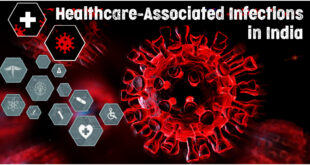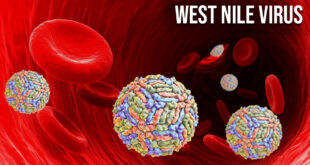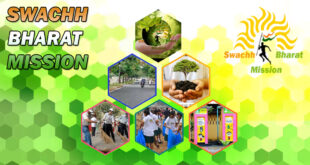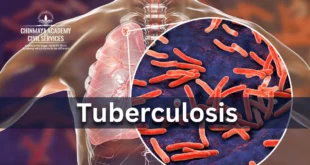The ongoing discussions within the Intergovernmental Negotiating Committee (INC-4) of the United Nations Environment Programme (UNEP) focus on establishing a global treaty to address plastic pollution. The treaty aims to provide a comprehensive framework to reduce plastic waste, with particular attention to creating fair conditions for informal waste workers. What …
Read More »Health
Marburg Virus
Context (IE): Recent outbreak of the Marburg virus has been reported in Rwanda. Overview of Marburg Virus Marburg hemorrhagic fever is a rare but highly dangerous disease, impacting both humans and nonhuman primates. The virus responsible for the disease is the Marburg virus, which belongs to the family of RNA …
Read More »TB IN INDIA
Recently, the Ministry of Health and Family Welfare published the India TB Report 2024, which reveals a decrease in the mortality rate from Tuberculosis (TB), dropping from 28 per lakh population in 2015 to 23 per lakh in 2022. Key Highlights of the Report Trends in TB Cases and Deaths: …
Read More »Euthanasia in India
Context: Recently, the Supreme Court of India declined a request to remove a Ryles tube from a patient in a vegetative state, even though the 2018 judgment on passive euthanasia permits the withdrawal of life support in terminal cases. Understanding Euthanasia: Euthanasia, also known as mercy killing, refers to intentionally …
Read More »Pharmaceutical Industry
Context (TH): Recent government decisions that prioritize imports over local production could undermine India’s domestic pharmaceutical sector and potentially result in increased drug prices. Ensuring the availability of affordable medications is vital in India, where out-of-pocket health expenditures made up nearly 47.1% of total spending in 2021. Current Scenario India, …
Read More »Guidelines for Organ Transportation
Context (TH): India’s Ministry of Health has released its first Standard Operating Procedures (SOPs) for transporting human organs, which cover various modes of transport, including road, rail, and waterways. Organ Transplantation in India India ranks as the third-largest country globally in terms of organ transplants. From 2013 to 2022, the …
Read More »Malnutrition – cause, impact and initiatives
Context According to the Ministry of Women and Child Development, Poshan Tracker data reveals that approximately 17% of children aged 0-5 years are underweight, 36% are stunted, and 6% are wasted. Findings of Poshan Tracker: Stunting Rates: Uttar Pradesh (46.36%), Lakshadweep (46.31%), Maharashtra (44.59%), and Madhya Pradesh (41.61%). Wasting Rates: …
Read More »Maize Revolution and Production in India
Context (IE) Over the past twenty years, maize production in India has seen a remarkable increase, transforming it into a green revolution driven by the private sector. Production has surged from 11.5 million tonnes in 2000 to over 35 million tonnes in 2024, with yields rising from 1.8 tonnes to …
Read More »Menstrual Leave Policy in India
Context The Supreme Court has directed the Centre to frame a model policy on menstrual leave for women employees. This directive highlights the need for recognizing menstrual leave, which offers time off for those experiencing period pains, similar to sick leave. Currently, menstrual leave is not covered under standard sick …
Read More »Chromium Contamination of Groundwater
Context: The National Green Tribunal has instructed the Central Ground Water Board (CGWB) to investigate chromium contamination in the groundwater of Sukinda Valley, Odisha. Key Details: Location: Sukinda Valley in Odisha is home to 97% of India’s chromite ore deposits. Chromium Characteristics: Chromium is a shiny, hard, brittle metal with …
Read More »The State of Global Air Report
Background: The State of Global Air Report is a collaborative assessment by the US-based Health Effects Institute (HEI) and the Institute for Health Metrics and Evaluation’s Global Burden of Disease (GBD) project. For the first time, this report has been produced in partnership with UNICEF. Scope: The report’s findings are …
Read More »National Health Infrastructure: NHCE, DHIS, NHA
Introduction India’s healthcare system faces significant challenges, including fragmented data, inefficient claim processing, and limited access to digital health services. The National Health Authority (NHA) has introduced key initiatives to address these issues, including the National Health Claim Exchange (NHCE) and the Digital Health Incentive Scheme (DHIS). Understanding these programs …
Read More »Healthcare-Associated Infections (HCAIs) in India
Introduction Define Healthcare-Associated Infections (HCAIs): Infections acquired by patients while receiving medical care in a hospital or other healthcare setting. Highlight the global concern: HCAIs pose a significant public health threat worldwide, leading to increased morbidity, mortality, and healthcare costs. Emphasize the Indian context: The situation in India is particularly …
Read More »West Nile Cases detected in Kerala
West Nile Virus has been detected in Kerala. The Kerala government on Tuesday said that cases of West Nile fever have been reported from three districts in the state – Thrissur, Malappuram and Kozhikode. GS Paper III (Internal Security & Environment): Focus on Public Health Issues: If the question asks …
Read More »Expanded Programme on Immunization (EPI)
Introduction: The Expanded Programme on Immunization (EPI) launched by the World Health Organization (WHO) in 1974 marks a significant milestone in global public health. It aimed to ensure universal access to life-saving vaccines for children, initially focusing on six childhood diseases: diphtheria, pertussis, tetanus, polio, measles, and tuberculosis. EPI: A …
Read More »National Mission on Edible Oils-Oil Palm (NMEO-OP)
Introduction The National Mission on Edible Oils-Oil Palm (NMEO-OP) is a flagship initiative launched by the Government of India (GoI) in 2021 to address India’s heavy dependence on edible oil imports. This mission aims to significantly increase domestic oil palm production, a key source of edible oil, and reduce import …
Read More »Introduction: Launched in 2014, the Swachh Bharat Mission (SBM), also known as the Clean India Mission, is a national campaign aimed at eliminating open defecation and improving overall sanitation practices in India. Provisions and Initiatives: The SBM is a two-pronged mission with distinct rural and urban components: Swachh Bharat Mission …
Read More »One Health Approach
Definition and Concept: One Health is a collaborative, interdisciplinary approach that recognizes the interconnectedness of human, animal, and environmental health. It emphasizes the need for cooperation among various sectors including human health, animal health, agriculture, environment, and others to achieve optimal health outcomes. Significance in India: India faces numerous health …
Read More »Glycemic Index of foods and diabetes
Concept : About Glycaemic Index : The Glycemic Index (GI) is a scale ranging from 0 to 100, which assigns values to foods based on their effect on blood glucose levels relative to pure glucose, which is arbitrarily given a value of 100. This value indicates the rise in blood …
Read More »Tuberculosis
About: Tuberculosis is a dangerous infectious disease that spreads easily and usually affects the lungs. Cause: Mycobacterium tuberculosis is the bacteria that causes tuberculosis. Transmission: if a person with tuberculosis (TB) of the lungs or throat coughs, speaks, or sings, the bacteria can enter the air and spread to other …
Read More » Chinmaya IAS Academy – Current Affairs Chinmaya IAS Academy – Current Affairs
Chinmaya IAS Academy – Current Affairs Chinmaya IAS Academy – Current Affairs


















